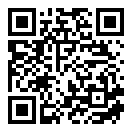Abstracts
Article data in English (انگلیسی)
Revelation and Religious Experience
Abulfadl Sajidi
One of the issues in modern religious studies is the nature or essence of revelation. Here, we will elaborate on this question: "can the Qur'anic revelation be considered one of the Prophet's religious experiences?"
This essay seeks to clarify the relation between the two. Therefore, we should first of all address the Christian viewpoint about revelation and religious experience and then see what they are. In this regard, we will explain the dualisic view about revelation and the triadic view sabout the nature of religious experience in order to reach a soundly based view. Next, we will try to find what, according to the Noble Qur'an, revelation is. Throughout, the essay refers to the different Quranic contexts in which revelation is used, and illustrates the conception of revelatory Qur'anic teachings. The final part of the essay introduces some observations about the kind of relation between the Qur'anic revelation and religious experience.
Keywords: Philosophy of Religion, Revelation, Religious Experience, Inspiration, Experience, The Qur'an, The Bible.
The Conventionality of Quiddity from Selfsameness to a Mirage
Hassan Mu'allimi
For all advocates of the principality of existence, it is important to interpret the conventionality of quid dity, because in the seinter pretations, there is a gap between regarding quid dities identical with their particular existences and marking quid dities as merely amirage. Therefore, the conventionality of quiddity can have three interpretations, each one of which has two sub-interpretations.
They areas follows:
1. Quiddity is identical with existence, the same way God's attributesare identical with Him. The difference is that quiddity does not become existent through thisunion, but only the existent is veritably qualified by it.
2. Quiddity is identical with existence, like the attributes of God, and quiddity, through such a union with existence, becomes existent.
3. Quiddity is the boundary of existence; it is the positive quality ofexistence, like surface and mass which are qualities of substance.
4. Quiddity is the boundary of existence; it has no positivity, and isutterly negative, like zero, which is nothing.
5. Quiddity is a mirage (delusion), but it is not an aboslutely mentalproduct, rather it is the outcome of an interaction between mind andthe quality of existents.
6. Quiddity is utterly a mirage; it is totally a mental construction which has no objective reference outside the mind.
Keywords: Conventionality of Quiddity, Absoluteness of Existence andthe Existent, the mode of determination, Selfsameness of Quiddity, Quiddity as Boundary, Quiddity as Mirage.
The Conformity of the Worlds
Abd al-Rassul Ubudiyat
(tatabuq al awalim) in the transcendentض The subject of the conformity of the worlds philosophy has been influenced by the argument about the five worlds in mysticism, namely the world of the Divine, the world of forms, the world of bodies, the world of abstracts and the world of intellect. Addressing this quession, the author first explains the special (or individual) (modes of) existence of quiddity as well as its collectiveexistence and then discusses the longitudinal cases of quiddity on the basis of the gradation in
quiddity and the longitudinal existences ofquiddity on the basis of the gradation in existence.
forms', Longitudinal cases of quiddity which from the ground for Plato'sidea of along with longitudinal existences of quiddity explain the theory of the conformity of the worlds. Since the gradation inquiddity, is not acceptable the longitudinal existences of quiddity, in fact, accounts for the conformity of the worlds.
Finally, the article reviews the principle of "the stronger a thing is in its existence, the stronger is its hold of meanings and quiddities," whichstems from longitudinal existences of quiddity. Also, the principle of simple (non - composite) reality is everything," which is a particular state of the first principle, has been dealt with. The article goes on to deal with the question, "Necessary being's lack of quiddity", which is the product of the last principle.
Keywords: Quiddity, Reality, Simple (non - composite) reality, Neccessary Being

















